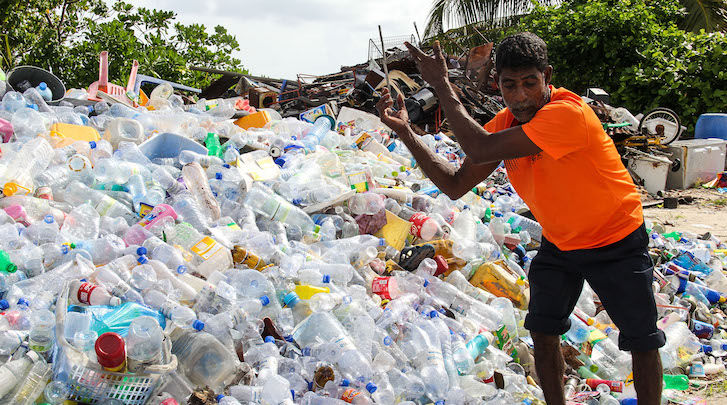Keeping paradise pristine
Ahead of this year’s Ramadan and World Environment Day, UN resident coordinator Shoko Noda writes about the escalating waste issue in the Maldives.

25 May 2017, 09:00
For me, it was a dream come true to be stationed in beautiful Maldives – with its small pearly islands enclosed by shining white beaches, and surrounded by waters in multiple shades of blue. As the days went by, however, my first impression of this pristine paradise started to look murkier.
On my second day in Malé, I was taking a walk in the city. Around the jetty, I saw lots of plastic bottles and packets floating amidst the clear turquoise waters. My alarm only increased as I visited other islands. Most of the inhabited islands stood in sad contrast to Maldives’ world-famous resorts. Along their white sandy shores, and around their little lanes, were heaps of garbage; piles of plastic bottles, nappies, tin cans, food packaging… you name it.
As someone who is very fond the ocean, I am most disturbed by marine litter and the impact it is having on the ocean’s ecosystems. Just the other day, I read via the Olive Ridley Project, about a huge, discarded fishing net entangling several sea turtles. While being a photogenic and iconic species admired by divers, sea turtles also play an important role in our environment. They help in sustaining beach vegetation by transporting essential nutrients from the oceans to beaches and the coastal dunes. Turtles are among the natural actors that can help prevent issues such as beach erosion – a severe problem faced by the small islands of the Maldives. An increase in garbage is not only tainting this pristine beauty, but is also compromising an already fragile natural environment.

Become a member
Get full access to our archive and personalise your experience.
Already a member?
Discussion
No comments yet. Be the first to share your thoughts!
No comments yet. Be the first to join the conversation!
Join the Conversation
Sign in to share your thoughts under an alias and take part in the discussion. Independent journalism thrives on open, respectful debate — your voice matters.




